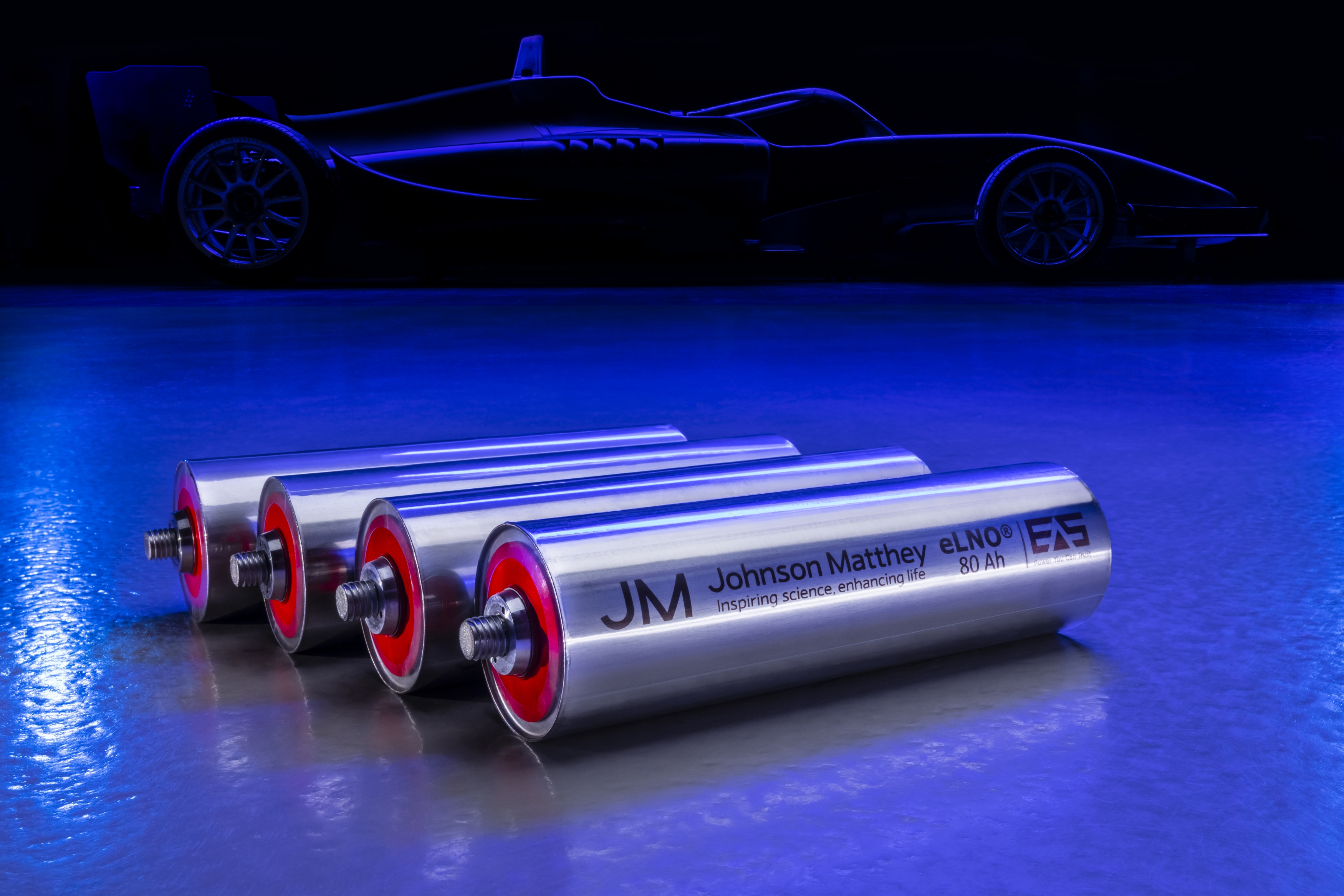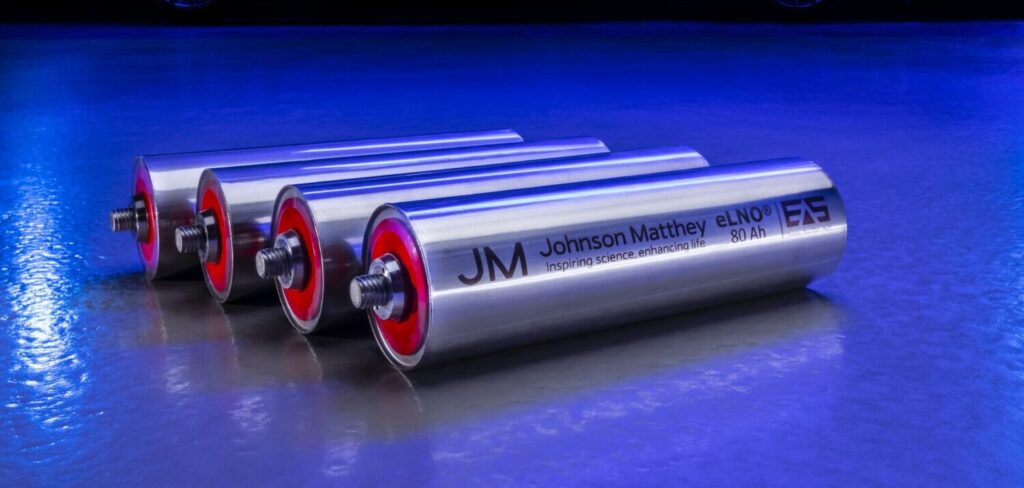Chemical company Johnson Matthey is to demonstrate its eLNO battery cathode technology in full-size lithium-ion battery cells by installing them in what appears to be a modified Formula E car.
The company explains that eLNO is a family of nickel-rich cathode materials which enable batteries to charge and discharge rapidly without compromising longevity. The car will be revealed at the COP26 climate change conference in Glasgow, Scotland, on October 31.
Johnson Matthey says that its eLNO cathode material enables batteries to achieve around 20% greater energy density compared to typical NMC cathode material technology.

The chemistry of the cathode material is enhanced using a proprietary stabilizer package and surface modification, engineering the material down to the atomic level. This enables the use of a high nickel content helping to increase energy density, as well as reducing the level of cobalt present, to sustain cycle life and stability.
Already in pilot production and being trialled by customers, eLNO will be supplied to manufacturers in Europe from two new production facilities. The first facility in Poland is under construction and will be completed in 2022, ready for commercial production in 2024. A second eLNO plant is also planned in Finland.
The battery cells themselves have been developed and produced by German specialist EAS Batteries. The cylindrical 602030-format cells were manufactured using an almost dry coating process – which has a far lower carbon footprint than typical wet coating – using a non-toxic solvent, with less solvent waste produced than typical cell production processes.
Through its use of a race car demonstrator for the technology, the company hopes to show its suitability for use in challenging environments, with Johnson Matthey envisaging it will prove popular in industries such as agriculture and other off-highway operations such as mining.
The car has been engineered in partnership with Formula E team Envision Virgin Racing and is being produced and assembled by Delta Cosworth.



